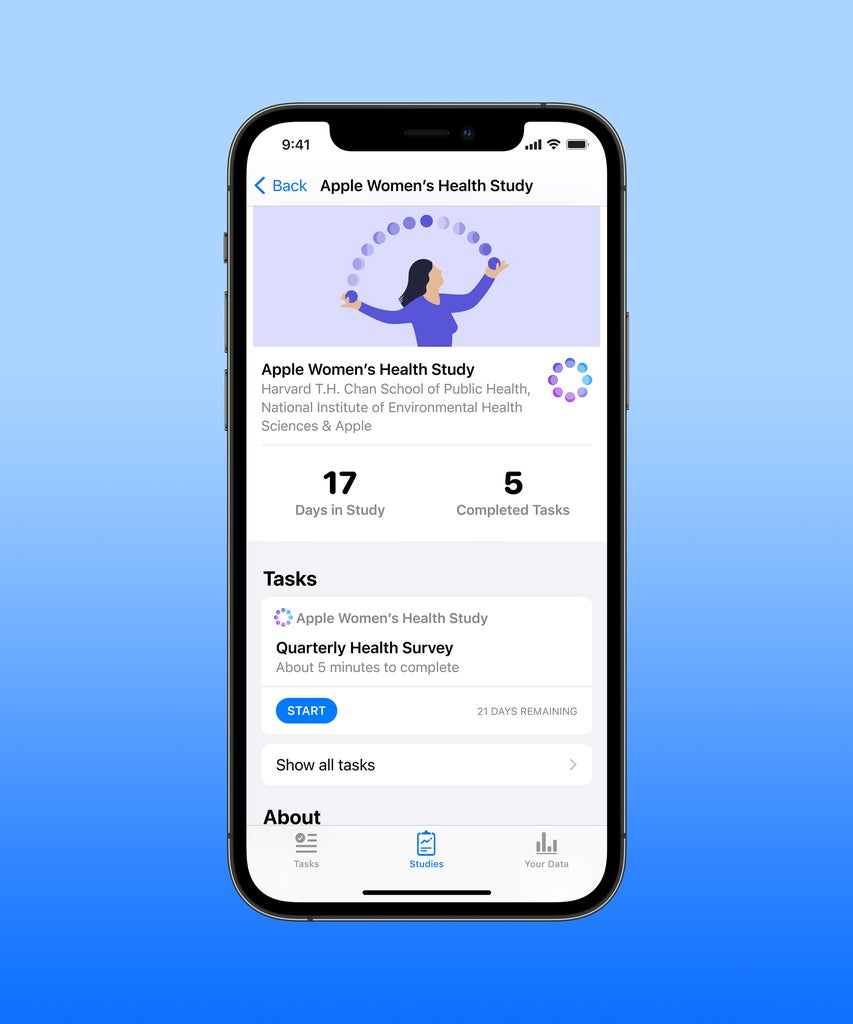
Period poop is one of those things no one talks about much, but so many people experience. My anecdotal experience confirms it: Mention “period poop” to a group of people who menstruate and you’ll hear a variety of stories, complaints, jokes, and questions. But now, for the first time, science has backed up my hunch that period poop is a super-common phenomenon, albeit an underreported one. A full 37% of people report experiencing diarrhea during their period, according to recently released findings from a study of 6,141 participants by Apple, Harvard T.H. Chan School of Public Health, and the NIEHS.
Research around period symptoms, especially lesser-known ones like diarrhea, is woefully lacking. If you search PubMed, a site that aggregates scientific research articles, for the word “menstruation,” you’ll get about 8,000 hits between 2001 and 2018. Search that same time frame for the terms “cardiovascular,” “prostate cancer,” or “erectile dysfunction,” and you’ll see 900,000, 120,000, and 16,000 results, respectively, notes a Harvard University researcher involved in the study. We actually don’t know much about what’s a typical period symptom and what’s a red flag, which can make it harder for people to get help for issues that are interfering with their lives.
It might seem a little silly, but it’s super-important to know how common period poop and other symptoms are. “I think we’ve all experienced, at times, physicians maybe not immediately getting on board with what you may be saying. This study gives us another tool in our toolbox to be able to say, ‘This is real, so let’s have a conversation about it,’” says Sumbul Desai, MD, Apple’s VP of Health. “The more evidence that we have as physicians to make decisions about clinical conditions and clinical actions, I think the better. And so, the more we can contribute evidence to this space, the better it’s going to be for everybody.”
That’s the impetus of the Apple Women’s Health Study. It’s intended to stretch on for 10 years; researchers will analyze data gathered from Apple’s Cycle Tracking app in an attempt to better understand the menstrual cycle. (Participants explicitly opted into the study, and can choose what data they want to share, from cycle tracking to fitness and sleep tracking.) The diarrhea stat was released as part of an early snapshot of the first set of findings from the study.

It’s a two-fold benefit: Data like this may empower people to talk to their doctor about their period symptoms, and it also may help clinicians treat those symptoms more seriously, which in turn will help people find relief more quickly. If you know how common period poop is, you’ll be more likely to mention it to your doctor during a check-up. And if your doctor understands that it’s common, they’ll be more likely to know what causes it and how it can be treated.
For what it’s worth, here’s why period poop happens: During your period, the body produces compounds called prostaglandins, which cause uterine contractions. Your digestive organs are near the uterus, so those contractions can make you “go” more often. In an article in The New York Times, Jen Gunter, MD, OB/GYN, said that taking a non-steroidal anti-inflammatory drug such as ibuprofen shortly before your period is about to start, can reduce diarrhea; the meds block prostaglandin production.
Further down the road, the data coming out of the Apple Women’s Health Study may also help physicians better understand symptoms that are correlated with conditions like PCOS and endometriosis. Women with endo, for instance, often aren’t diagnosed for 10 years or more, in part because doctors write off the red flags as standard period issues.
The researchers involved in the study are excited to see what other information they glean from their research. And though the recently released findings are very early, they expect this year to offer some extremely interesting insights. “Women across the globe have been experiencing unprecedented stressors in their lives: physical, economic, mental, you name it,” notes Michelle Williams, ScD, Dean of the Faculty at Harvard T.H. Chan School of Public Health, in reference to the pandemic. “The real value of a longitudinal study like what we are undertaking is that we’re able to characterize that moment in time in these biological and behavioral ways. So it’s fortuitous, that over the arc of time, we’ll be able to do snapshot analyses and look collectively across times like now, and hopefully, three or four or five years from now when those same environmental stressors are not quite at the same level, and see how our biology has changed.”
Like what you see? How about some more R29 goodness, right here?
Talking Shop With Cherie Hoeger, Founder of Saalt
Pantone's Period Color Really Misses The Mark
from Refinery29 https://ift.tt/38pA4Yz
via IFTTT
